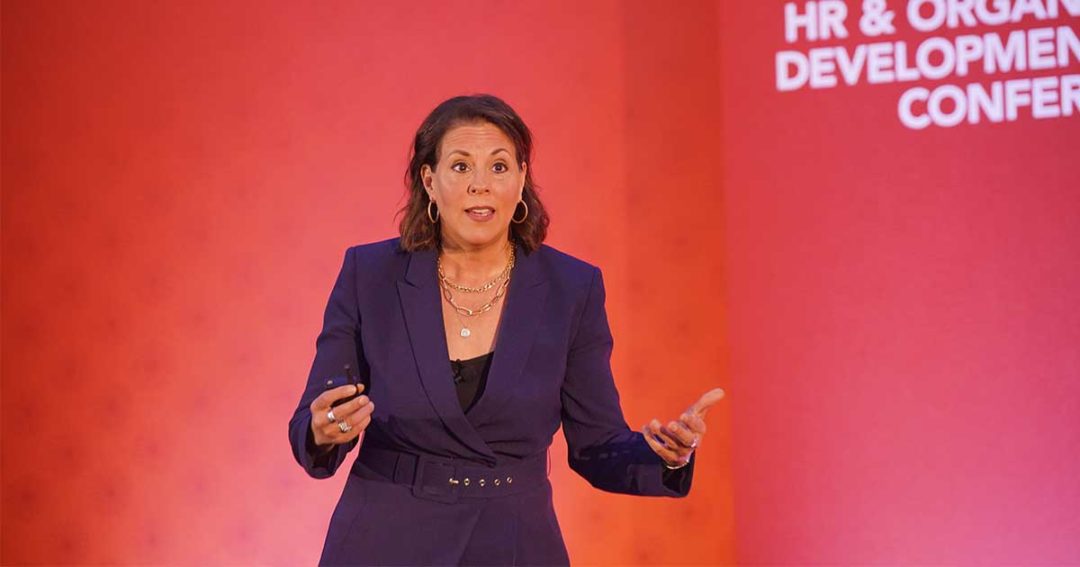
Get results instead of regrets
Three steps to overcoming challenges and clearing hurdles in your way.
Darcy Luoma believes there are two ways to view challenges: as roadblocks or as hurdles.
The author, speaker, and coach suggests the latter, telling Monday’s audience at the America’s Credit Unions' 2024 HR & Organizational Development Council Conference in St. Pete Beach, Fla., that, “The reality is we cannot eliminate hurdles. There will be more unpredictable challenges that we’re not anticipating. The key is to train to overcome them. And when you train, it helps your workplace. When your colleagues pause and think before acting, you have more meaningful discussions, and your teams will see better results and fewer regrets.”
For credit union human resources and organizational development professionals, current workplace challenges include:
- Managing a remote/hybrid workplace with creative onboarding that keeps employees engaged and helps them feel part of the team.
- Balancing everything while dealing with stress and burnout for themselves, as well as for their credit union’s employees.
- Dealing with workforce issues such as finding motivated employees, managing the mindsets of different generations, and maintaining a positive culture.
Training to overcome obstacles leads to being what Luoma calls, “Thoughtfully Fit®,” a model that serves as the mental counterpart to physical fitness.
“When you’re thoughtfully fit, your life is easier because you’re more intentional, you’re more thoughtful, and you’re navigating all your challenges,” says Luoma, president of Darcy Luoma Coaching & Consulting. “You can’t control what happens to you, but you can control what you do next. It doesn’t get easier; it just feels easier because you’re stronger.”
The Thoughtfully Fit model believes that people facing challenges inherently have a go-to preference for navigating obstacles. They respond in one of three ways:
- Pause—taking a moment to be fully present.
- Think—analyzing the situation from every angle.
- Act—taking control to get things done.
Luoma warns that the natural response isn’t always most effective, saying that people who take their strengths to extreme levels can create further challenges for themselves. Those who pause can become distracted, thinkers can overanalyze and fail to act, and acters can overreact and do something they regret.
“The key is to do all three in order: pause, think, and then act,” Luoma suggests. “These three steps are the ‘core’ of Thoughtfully Fit. They help you build resilience to navigate challenges and build results instead of regrets. Doing so will help you be aware of your thoughts and emotions, instead of controlled by them.”
In practice, the Thoughtfully Fit core looks like someone pausing to clear their mind; thinking by asking themselves questions such as “What am I struggling with? What’s most important for me to focus on? How did I handle this last time? And what do I need?”; and then acting by confidently taking action.
“When you do all three of things in order, you’ll get better results. and then you can repeat the process,” Luoma says, suggesting session attendees practice engaging their thoughtful core three times each week. “There will be plenty of opportunities, but no matter what the challenge is, the workout’s the same: pause, think, and act. Wash, rinse, repeat. By training your thoughtfully fit core, you are in control of writing your next chapter.”